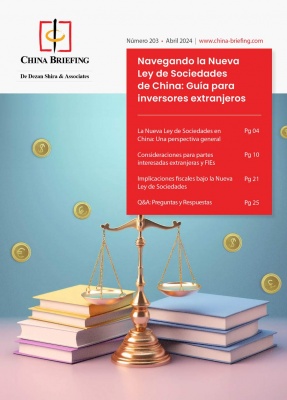Foreign Law Firms Registered in China
BEIJING – The ability to practice law and provide opinions on matters of Chinese law is regulated and overseen by the Chinese Ministry of Justice (MOJ). Foreign law firms who wish to advise on such matters must obtain approval from the MOJ and obtain a license to practice in order to do so.
That said, there is a tendency amongst less professional or trustworthy firms to jump on the China bandwagon and indicate that they have a law ‘practice’ in China. Such ‘practices’ typically sub-contract client work to a local firm which can create problems in terms of quality standards, not to mention the obvious markup in China fees that the middleman firm is making from the client. Most businesses would prefer to deal with a lawyer and a law firm based in China directly, not through what amounts to an essential China middleman, even if they are posing as a “China lawyer.”
In fact, advising on matters of Chinese law is strictly regulated by the Chinese MOJ. While they do not have the jurisdictional power to prevent overseas firms from pretending to have a China presence, clients that use such ‘practices’ for China work face potential issues with insurance claims and quality of work as such practices are not mandated to actually provide these services. This can have serious implications if the firm provides incorrect or substandard advice – they are not governed by the code of conduct that the Chinese Ministry of Justice insists upon, and there would be no client recourse against the firm as a result. If a business uses a firm not actually authorized to practice, insurance claims may be invalidated in the event of any malpractice suits.
There are three ways to check whether a law practice has a real office in China or not. Firstly, one can view the practice’s website, and see if it lists such an office, its address and partner in charge. If they do not list such an office, they do not have a presence in China as it is illegal to advertise the provision of services or to list an office without being approved and licensed to do so in that pertinent country.
The second way is to refer to the Chinese Ministry of Justice Foreign Law Firm list, with the most recent edition available online here. If a firm does not appear on this list then they are not registered or licensed to practice on matters of Chinese law according to the Chinese Ministry of Justice. The list is accurate as of six months ago – meaning firms that have been granted licenses after this date may not appear until the next updated is conducted.
The third option is to simply ask the firm concerned for a copy of their Chinese business license. It will list the name of the firm in English, together with their address, the name of the China Registered Partner and the date of validity.
Foreign law firms that do suggest they ‘practice’ or can advise on Chinese law and cannot provide these details are operating in jurisdictions they are not permitted to. Unfortunately, it is an occasional problem, and is actually illegal. Foreign law firms that have not registered with the MOJ either have not bothered to do so, cannot do so, or have been rejected or barred from practicing Chinese law by the Chinese authorities for misdemeanors. It does happen.
The Foreign Law Firm list provides details of all foreign law firms authorized to practice in China. It makes far better corporate sense to use such a firm, rather than any of the imposters, or third party middlemen practitioners that are also attempting to charge fees for China law work, yet are without the real authority, licensing approvals, China infrastructure or financial commitment to do so.
Dezan Shira & Associates is a specialist foreign direct investment practice, providing corporate establishment, business advisory, tax advisory and compliance, accounting, payroll, due diligence and financial review services to multinationals investing in emerging Asia. Since its establishment in 1992, the firm has grown into one of Asia’s most versatile full-service consultancies with operational offices across China, Hong Kong, India, Singapore and Vietnam in addition to alliances in Indonesia, Malaysia, Philippines and Thailand as well as liaison offices in Italy and the United States.
For further details or to contact the firm, please email china@dezshira.com, visit www.dezshira.com, or download our brochure.
You can stay up to date with the latest business and investment trends across Asia by subscribing to Asia Briefing’s complimentary update service featuring news, commentary, guides, and multimedia resources.
Related Reading
Intellectual Property Rights Strategies in Southeast Asia: Know Before You Go
China’s Relationship with the Contentious U.S. FATCA
China Strengthens Enforcement of 24-hour Registration Rule for Foreigners
China Issues White Paper on Intellectual Property Protection
- Previous Article Minimizing the Risk of Falsely Issued Invoices in China
- Next Article The Impact of China’s New Labor Dispatch Rules on FIEs
























